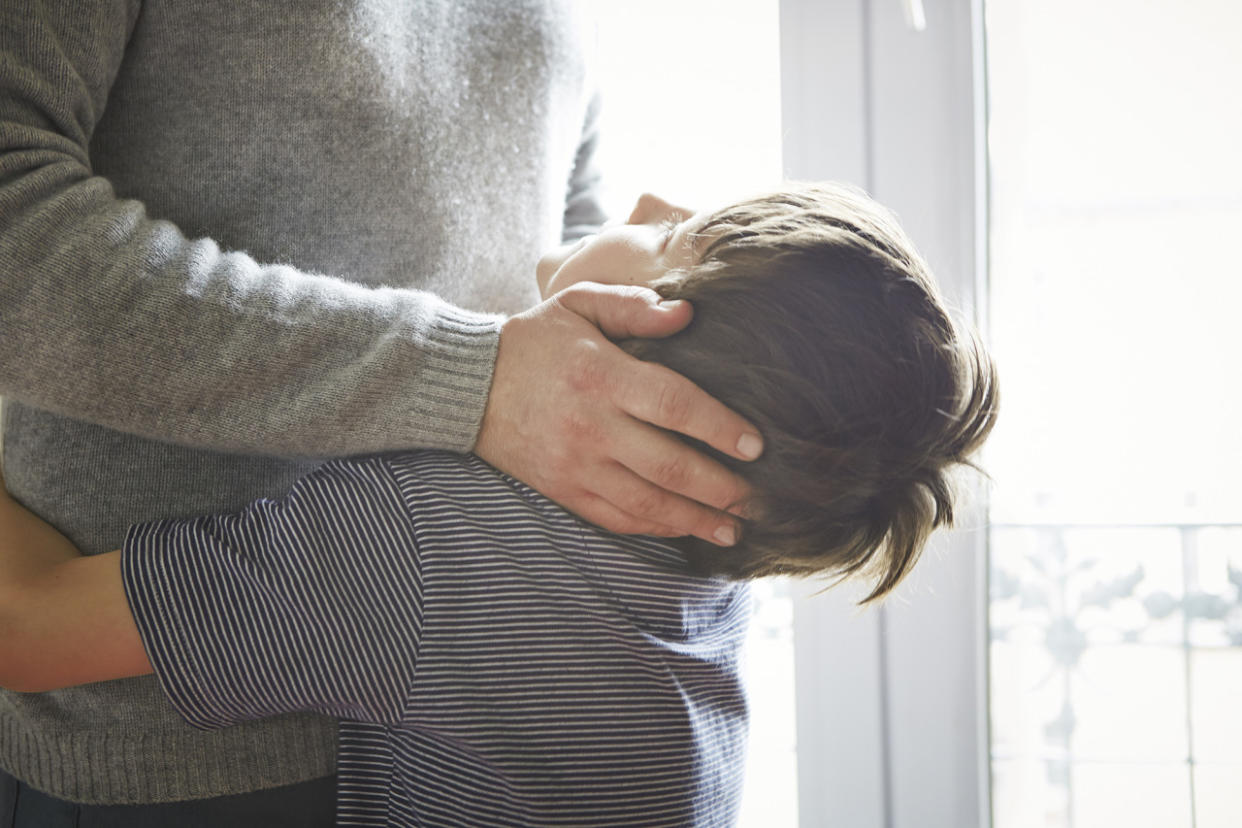How Parents Can Keep Their Own Anxiety From Impacting Kids

As a parent in today’s world, there’s a lot to be anxious about. Especially when news like that of the San Bernardino mass shooting seems to break every other day. But for moms and dads, part of the job is shielding children from our worry, so that they can enjoy being kids rather than living in constant fear. Still, that’s not always so easy.
“Our kids are incredibly tuned into our moods,” family physician and parenting expert Dr. Deborah Gilboa tells Yahoo Parenting. “And every emotion in us engenders an emotional reaction in our kids. When you are exuding anxiety, their reaction might be empathy — taking our anxiety and making it their own — or it might be irritability or distancing themselves. But if you are experiencing an understandably heightened level of anxiety about tragedy in the world, it doesn’t serve our kids to burden them with those reactions.”
STORY: No, We Don’t Want to Talk to Our Kids About Mass Shootings
That’s not to say kids shouldn’t be made aware when a national tragedy occurs, Gilboa says. “But it’s better for them to learn from us about these events without it being clouded by all that anxiety,” she explains. “So it’s not that we aren’t going to talk to our kids about these things, but they can’t handle the brunt of the storm of our emotions.”
The first thing to know, Gilboa says, is that even if you don’t say anything directly to your kids about your fear or anxiety, talking about those emotions in their presence has the same — if not a stronger — effect. “Kids listen more to what we say around them than to what we say to them,” Gilboa says. “They are great information gatherers even from a young age, and they know we say things to other adults that we don’t say to kids. So by listening in, they know that’s how they get the important information — whether it’s that something great is happening tonight or something bad is going on.”
STORY: Father of San Bernardino Shooter Speaks Out
Because of that, Gilboa says, parents should do most of their own information gathering, and sharing, out of earshot of their children. When you hear that something anxiety-provoking has happened, whether it be national news or a family stressor, wait until you are alone to get the full story. “If you’re with your kids when you hear about a shooting, don’t go rushing off to your favorite news site to figure out what happened,” she says. “If you know you will be bothered by what you’ll learn, wait until you are alone. If you’re with your kids, you wont have the space to have your own natural first reaction. Give yourself the opportunity to get the details you want to know so you wont have to pretend it doesn’t bother you when it does.”
Make sure, too, that you have a support system on which you can unload some of your anxiety. “We know anxiety is improved with communication, so if you have someone to talk to, with whom you can process what you’re going through, it can lesson your anxiety,” Gilboa says. But again, make sure you have that conversation with an adult when your kids can’t hear. “Not just when it looks like they aren’t paying attention, because they always are, and you might transfer some of your emotions to your kids even if you don’t mean to.”
Finally, try to identify your own healthy coping mechanisms, Gilboa says. “Know yourself well enough to know what reduces your anxiety,” she says. “What are the healthy behaviors that make you feel better — listening to music, painting, exercising, playing Words with Friends? Whatever it is that channels your energy in a different direction.”
For some parents, those coping mechanisms might involve their kids, and that’s OK, Gilboa adds. “If you’re feeling anxious, one of the things that might make you feel better is to hug your kids or pray with your kids for the safety of other people,” she says. “Or maybe it’s doing community service as a family. That’s totally great and fine, as long as your children aren’t the repository of your anxiety.”
(Top photo: Getty Images)
Please follow @YahooParenting on Facebook, Twitter, Instagram, and Pinterest. Have an interesting story to share about your family? Email us at YParenting (at) Yahoo.com.

